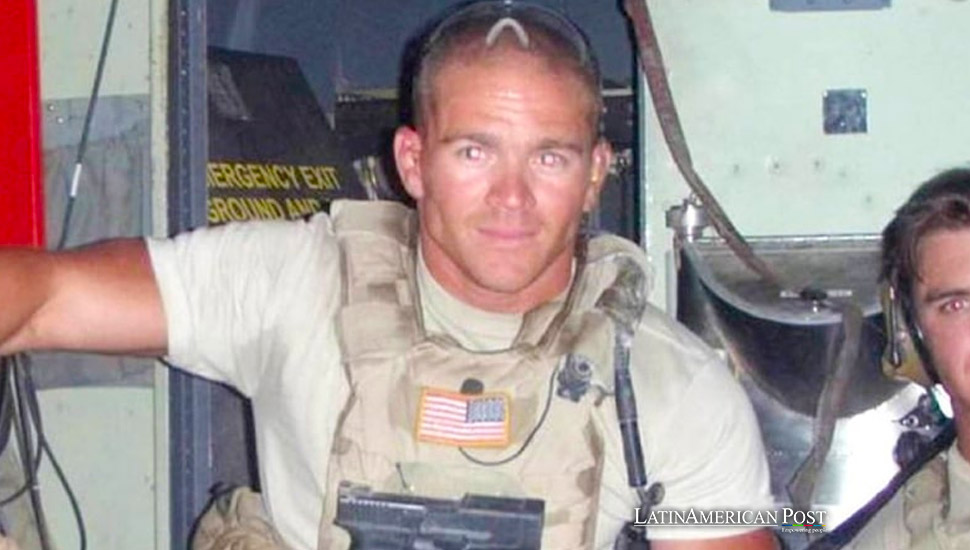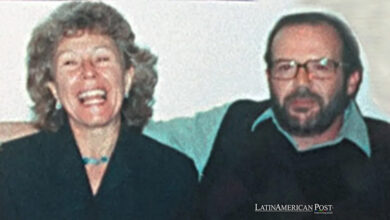Former Green Beret Arrested for Arms Smuggling and Failed Venezuelan Coup

Jordan Goudreau, a former U.S. Green Beret, was arrested in New York on federal arms smuggling charges linked to a failed 2020 cross-border raid to overthrow Venezuelan President Nicolás Maduro. Goudreau’s case underscores the complex geopolitical tensions involving Venezuela.
Jordan Goudreau, a former U.S. Green Beret, organized a failed cross-border raid in 2020 to remove Venezuelan President Nicolás Maduro. Recently, he has been arrested in New York on federal arms smuggling charges. A federal indictment unsealed in Tampa, Florida, accuses Goudreau and his Venezuelan partner, Yacsy Alvarez, of violating U.S. arms control laws by allegedly assembling and sending AR-style weapons, ammo, silencers, night vision goggles, and other defense equipment requiring a U.S. export license to Colombia.
Goudreau, 48, also faces charges of conspiracy, smuggling goods from the United States, and unlawful possession of a machine gun among 14 counts. Following his arrest in Manhattan, Goudreau appeared in federal court, though it remains unclear whether he will be released from custody pending trial. He is currently held at a federal detention center in Brooklyn.
Goudreau, a three-time Bronze Star recipient for bravery in Iraq and Afghanistan, gained notoriety in 2020 when he claimed responsibility for an amphibious raid by a group of soldiers trained in clandestine camps in Colombia. His bravery in these conflicts is a testament to his character. He and his group claimed to be acting to protect Venezuela’s democracy following Maduro’s 2018 re-election, which was boycotted by the opposition and condemned as undemocratic by the U.S. and many other countries.
Two days before the incursion, an Associated Press investigation detailed how Goudreau had been attempting for months to raise funds for the operation from the Trump administration, Venezuela’s opposition, and wealthy Americans interested in investing in Venezuela’s oil industry if Maduro were removed. Despite initial enthusiasm from then-opposition leader Juan Guaidó, who signed an agreement with Goudreau to explore the coup, financial support was minimal, leaving the would-be liberators with inadequate food, weapons, and supplies.
Despite the setbacks, the coup plotters proceeded in a manner ridiculed as the “Bay of Pigs,” about the 1961 Cuban fiasco. Having infiltrated the group, Venezuela’s security forces quickly quelled the attempt. Two of Goudreau’s former Green Beret colleagues spent years in Venezuelan prisons until a prisoner swap last year involving other jailed Americans and a Maduro ally held in the U.S. on money laundering charges.
Geopolitical Tensions and Legal Battles
The arrest of Goudreau comes as Maduro faces renewed pressure over his increasingly authoritarian actions. Authorities recently declared him the winner of the country’s presidential election. Still, a growing chorus of Western states, including the U.S., refuse to recognize the results, demanding Venezuela release individual precinct tallies. The opposition presented records from 80% of the polling booths, showing that their candidate, Edmundo González, defeated Maduro by a two-to-one margin.
The federal indictment against Goudreau documents the ill-fated plot in detail, citing text messages between the defendants about their efforts to acquire and export military equipment to Colombia. One November 2019 message from Goudreau to an equipment distributor listed AR-15 rifles, night vision devices, and ballistic helmets. “We def need our guns,” Goudreau wrote in one text message, according to the indictment. Prosecutors traced a web of money transfers, chartered flights, and large-scale purchases, including $90,000 spent on a used yacht named Silverpoint, which carried Goudreau, an associate, and several cans of ammo, body armor plates, and magazines for AR-15 rifles from U.S. waters in February 2020.
Unraveling of the Plot
A month after the yacht’s departure, Colombian police found the stockpiled gear at a checkpoint near Santa Marta in a car hired by Alvarez. From there, the plot—and Goudreau’s involvement—quickly unraveled. Alvarez was an associate of Franklin Durán, a Venezuelan businessman with close ties to the government of the late Hugo Chávez. Durán, who had spent almost four years in a U.S. prison for covering up clandestine cash payments to Chávez’s allies, owned the Venezuela-registered Cessna Citation II used to transport Alvarez and Goudreau.
The U.S. indictment does not mention Durán but details how Goudreau, Alvarez, and unnamed others traveled on at least three occasions between Miami’s Opa-Locka airport and Barranquilla, Colombia, where they registered a Colombian affiliate of Goudreau’s company Silvercorp. Earlier this year, Goudreau’s leading partner in the coup attempt, retired Venezuelan army general Cliver Alcalá, was sentenced in Manhattan federal court to over two decades for providing weapons to drug-funded rebels in an unrelated case. Goudreau attended the court proceedings and praised Alcalá as a patriot deserving of a reduced sentence but refused to speak about his role in the coup.
Goudreau’s attorney, Gustavo J. Garcia-Montes, maintains his client’s innocence but declined further comment. The U.S. Justice Department also declined to comment.
Broader Implications
Goudreau’s arrest and the details of the failed coup plot underscore the ongoing geopolitical tensions surrounding Venezuela. The international community continues to scrutinize Maduro’s regime, with calls for transparency and democratic processes growing louder. The situation in Venezuela remains precarious, with economic instability, political unrest, and humanitarian concerns dominating the landscape.
The failed coup attempt and subsequent legal actions against Goudreau highlight the complexities of foreign intervention and the challenges faced by opposition movements within Venezuela. As Maduro’s government continues to consolidate power, the prospects for a peaceful and democratic resolution to the country’s crisis appear uncertain.
The involvement of former military personnel like Goudreau in such plots raises questions about the role of private military contractors and the extent to which they can influence geopolitical events. Using mercenaries and private forces in international conflicts remains a contentious issue with significant legal and ethical implications.
As Goudreau’s case progresses through the legal system, it reminds us of the broader issues at play in Venezuela. The country’s future hinges not only on its people’s ability to navigate the complex political landscape but also on the international community’s support and pressure. Together, we can work towards a more stable and democratic society. International support and pressure will continue to be crucial in shaping the outcome.
For the U.S. and other Western nations, the challenge lies in balancing the push for democratic reforms in Venezuela with the need to avoid exacerbating the humanitarian crisis. This delicate balance requires thoughtful and strategic diplomatic efforts, economic sanctions, and support for civil society organizations. It’s a critical component of our international relations strategy.
The situation in Venezuela is a stark example of the broader struggles faced by many nations grappling with authoritarian regimes, economic hardship, and political instability. The international community must remain vigilant and proactive in supporting democratic movements and addressing the root causes of such crises.
The arrest of Jordan Goudreau and the details of the failed coup plot against Nicolás Maduro shed light on the ongoing turmoil in Venezuela. As the country continues to face significant challenges, the international community’s role in supporting democratic change and addressing humanitarian concerns remains critical.
Goudreau’s case highlights the complexities and risks associated with foreign intervention and the use of private military contractors in geopolitical conflicts. The broader implications for Venezuela and the international community will unfold as legal proceedings continue.
Also read: New Sanctions on Venezuela: A Necessary Step for Global Accountability
Amid these challenges, the resilience and determination of the Venezuelan people offer a glimmer of hope for a brighter future. The path to stability and democracy will be difficult, but progress is possible with continued support and pressure from the international community.





